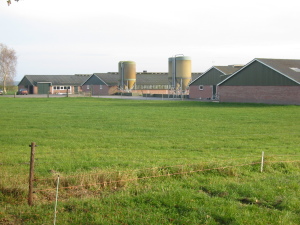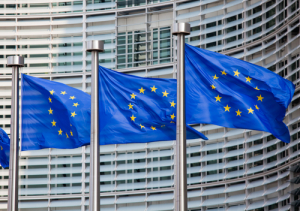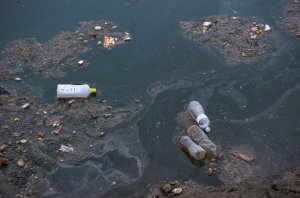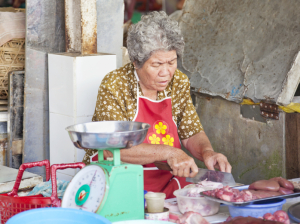Worldlog Tjedan 48 – 2014
Grozne vijesti ovaj tjedan. Dvije su farme peradi zajedno plinom usmrtile gotovo 200,000 kokoši zbog izbijanja ptičje gripe. Trenutni je sistem velikih štala tempirana bomba što se tiče izbijanja životinjskih bolesti. Godine 2003. plinom se usmrtilo gotovo 40 milijuna kokoši zaraženih ptičjom gripom. To je vidljivo kod svih živih bića koja skupa žive na skućenom prostoru, tad izbijaju bolesti. Potpuno je suludo da u samo tri nizozemske općine (Barneveld, Veenendaal i Ede) skupa nalazimo čak tri milijuna kokoši. Ovo predstavlja stalnu prijetnju izbijanja zaraznih bolesti. Unatoč tome što okolno stanovništvo strahuje za svoje zdravlje, tvornice virusa u obliku mega štala se i dalje grade i nadograđuju.
Suvremena su istraživanja dokazala da ptice selice, u koje se dosad upiralo prstom kao prijenosnike ptičje gripe, zapravo obolijevaju od ptičje gripe prilikom prolaska kroz Nizozemsku.
Sve u svemu, dovoljno za debatu u Donjem domu. Nažalost, moj je upit bio odbijen. U međuvremenu sam postavila Zastupnička pitanja kako bi mi se razjasnila sigurnost dobrobiti životinja tokom zabrane prijevoza, sigurnost okolnog stanovništva i primjenu CO2-a za usmrćivanje kokoši. Usmrćivanje plinom CO2 često znači sporu i bolnu smrt za kokoši.
Ovog sam tjedna uručila dva prijedloga vezana za ugovor o slobodnoj trgovini između EU i Sjedinjenih država (TTIP). Ovi prijedlozi pozivaju našu vladu da pogura EU da prekine pregovore oko ovog ugovora i da umjesto toga sa Sjedinjenim državama pregovaraju o održivoj alternativi. U međuvremenu su razne organizacije i građanski pokreti u 21 država članica osnovali građansku inicijativu koja je već skupila preko 913,000 potpisa. https://stop-ttip.org/ Europska je komisija prošlog mjeseca objavila pokretnicima inicijative da neće priznati njihovu inicijativu. Šteta. Progovorila sam o ovom problemu u nizozemskoj vladi, te se nadam da će se založiti za to u Bruxellesu. Taj bi ugovor o slobodnoj trgovini mogao nanijeti veliku štetu okolišu, dobrobiti životinja, nerazvijenim zemljama i Europskim proizvođačima. Nadam se da ćemo se uspijeti oduprijeti!
Zanimljive vijesti! Dvadesetogodišnji Boyan Slat iz Delfta osvojio je nagradu za okoliš VN svojim izumom kako očistiti plastičnu juhu. Jednom „crowdfundcampagne“ skupilo se dovoljno novaca za testiranje njegovih sve većih prototipa te instalacije. Boyan je najmlađa osoba koja je dosad osvojila ovu nagradu. Čestitamo!
U debati o Proračunu inozemnog trgovanja i Suradnje za razvoj ukazala sam na odnos između problema Zemlja u razvoju i klimatskih promjena. Zbog klimatskih promjena koje uzrokuje Zapad, u pitanje dolazi predviđanje svjetskih zaliha hrane koja će najviše pogoditi upravo Zemlje u razvoju. Osim toga, u skorije će vrijeme porast razine mora dovesti do stotine tisuća klimatskih izbjeglica. Naglasila sam i da pomoć iz Nizozemske prije svega mora doći u obliku promjene u načinu proizvodnje i konzumiranja hrane. Moramo se snažno založiti za poštenu trgovinu, transparentnu po pitanju porijekla i regionalizacije!
Još jedan zanimljivi filmić vrhunskog ekonomista Rifkina. On se zalaže za kraj visoke konzumacije mesa i upozorava da kreditna kriza nije ništa u odnosu na probleme koji će tek doći. https://www.youtube.com/watch?v=m9wM-p8wTq4
Do idućeg tjedna!
Terrible news this week. Almost 200,000 chickens in total at two poultry holdings were gassed due to an outbreak of bird flu. The current large-scale system is like a ticking time-bomb for unstoppable outbreaks of animal diseases. In 2003, 40 million chickens were gassed due to the bird flu. Diseases are bound to arise when living beings are kept so close together in one area. It is absolutely ridiculous that three small Dutch municipalities ( Barneveld, Veenendaal and Ede) together accommodate ten million chickens. It is causing a continuous threat of a contagious virus outbreak. And despite the fact that people living in the neighbourhood are seriously worried, more mega stables or virus factories are being built.
Recent research showed that migratory birds, which often serve as scapegoats for bird flu, are actually exposed to the virus in the Netherlands instead of bringing it here.
All in all, food enough for a debate in the House of Representatives. My request for one was unfortunately rejected. In my parliamentary questions I asked for clarification on the guarantee of the welfare of animals during the transport ban, the safety of people living in the neighbourhood and the application of highly animal unfriendly CO2 to kill chickens. Gasification with CO2 often means a slow painful death for the chickens.
This week, I submitted two motions regarding the Free Trade Agreement between the EU and the United States (TTIP). The motions request our government to call on the EU to end the negotiations on this agreement and to discuss a more sustainable alternative with the US. Meanwhile, more than 230 community organisations and citizens’ movements from 21 Member States have started a citizens’ initiative and have already collected more than 913,000 signatures. https://stop-ttip.org/ Last month, the European Commission informed the initiators that it will not acknowledge the citizens’ initiative. Shame on the EU. I called on the Dutch government to argue in favour for the initiative in Brussels. The Free Trade Agreement has very harmful effects on the environment, animal welfare, developing countries and European entrepreneurs. Hopefully we can stop these types of practices!
Great news! The 20-year-old Dutch Boyan Slat from Delft has won the UN Environmental Prize with his invention to remove plastic soup. Enough money has meanwhile been raised by a crowd fund campaign to test increasing prototypes of his installation system. Boyan is the youngest winner of this prize ever. Congratulations!
During the debate on the Foreign Trade and Development Cooperation budget, I pointed out the relation between development issues and climate change. The global food supply is threatened by the climate change that is caused by the West, which will hit the developing countries hardest. On top of that, the rising sea level will cause hundreds of thousands of climate refugees within no time at all. I further clarified that development aid from the Netherlands should in particular mean that we will start to produce and consume differently. We have to focus on fair trade, transparency with respect to the origin of the raw materials and regionalisation!
Here is a very interesting video of chief economist Rifkin. He advocates an end to the high meat consumption and says that the credit crisis is nothing compared to the problems that are still to come. https://www.youtube.com/watch?v=m9wM-p8wTq4
Until next week!



